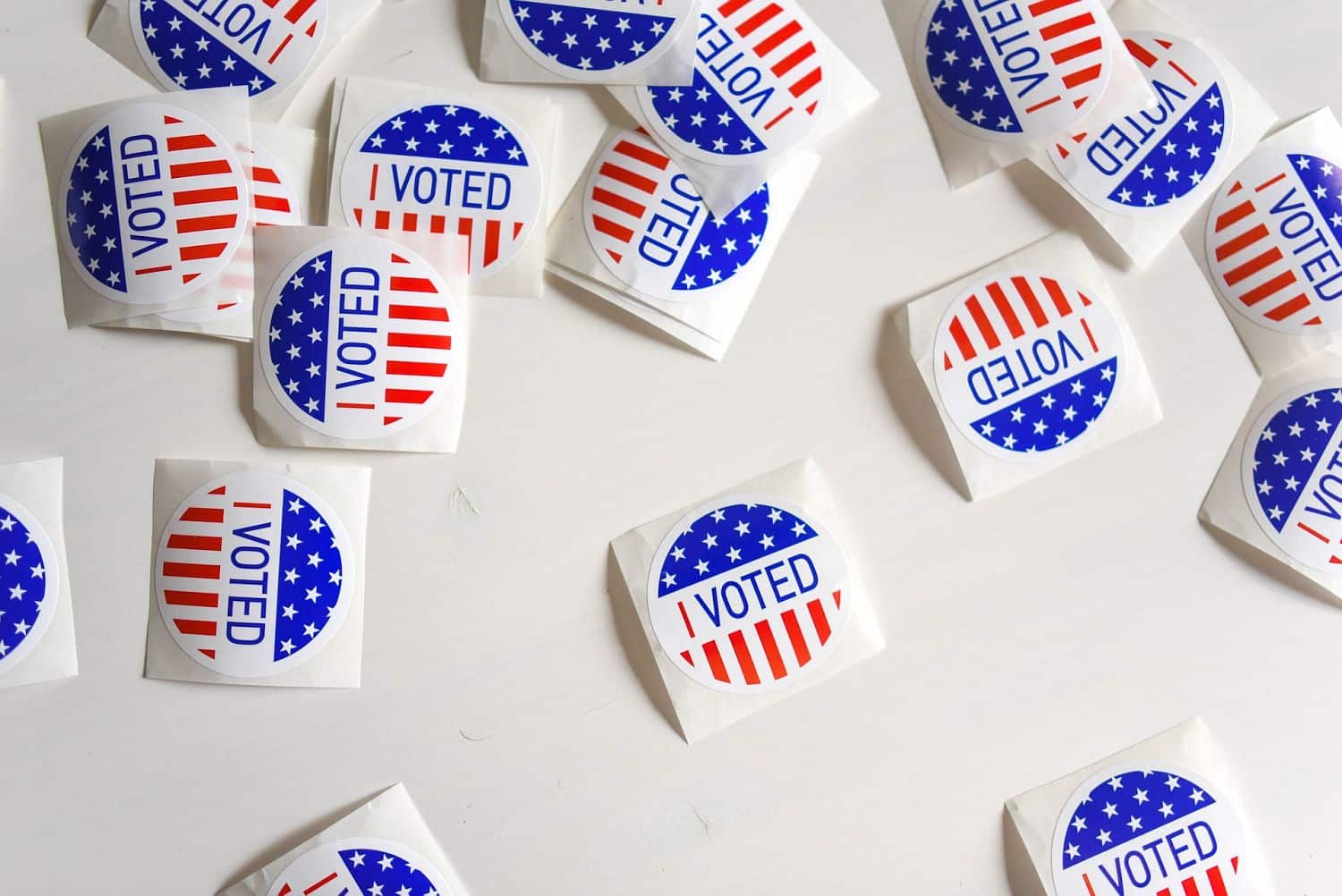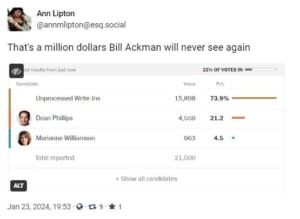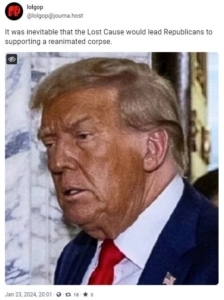VP Harris’ Haley Play
This week, Greg Sargent has had two good podcasts on swing state politics, first with the campaign strategist for North Carolina Attorney General Josh Stein, Morgan Jackson, and then with Josh Shapiro. Both talked about the import of losing by less in rural areas — something Barack Obama did successfully, something that Senate candidate Elissa Slotkin says she’s attempting on Michigan.
But Jackson focused on something else: he noted that Nikki Haley received 250,000 votes in the March 5 primary, the day she dropped out. If Harris can convert any of those voters, it can chip into the 10,000 votes by which Joe Biden lost North Carolina to Trump in 2020.
Nikki Haley got almost 300K votes on February 27 in the Michigan primary.
Nikki Haley got over 75K votes ono March 12 in the Georgia primary.
Nikki Haley got 110K votes on March 19 in the Arizona primary.
Nikki Haley got over 75K votes on April 2 in the Wisconsin primary.
Nikki Haley got over 150K, more than 16% of the vote, on April 23 in the Pennsylvania primary, over a month after she dropped out.
To be sure, most polls show that Trump is still winning an overwhelming majority of the self-identified Republican voters. Trump will get most of these votes.
But Harris’ cultivation of Republican endorsements makes more sense when you think of the one-sixth of the Republican primary voters who voted against Trump long after Haley dropped.
And that’s why two recent endorsements are of particular interest. Last Friday, the co-chair of Haley’s Iowa campaign endorsed Harris.
I served as an Iowa state co-chair of the Nikki Haley for President campaign. I think both parties let us down by selecting two candidates for president in or near their 80s. I was at a loss.
Then, when President Joe Biden stepped down and endorsed Kamala Harris as his replacement, I decided to see who she really was. I was impressed with how she handled herself saying that she wanted to “earn everyone’s support.” She showed willingness to listen to a wider range of views to solve problems.
So I am supporting Kamala Harris for president.
On Wednesday, two key Haley supporters in Michigan endorsed her, including her co-Chair Bill Nowling (who once worked for Rick Snyder).
We disagree, sometimes strongly, with Vice President Harris on some of the ways we increase opportunity for everyone, but we believe she is a person of integrity. And right here, right now in this important election, character and integrity matter most of all.
We can’t say the same thing about former President Trump. Trump builds up himself by tearing down America and Americans. Just last week, during a speech that was supposed to be about battling antisemitism, the former president said the Jewish people would have “a lot to do with” the reason he might not win in November. During his televised debate with the vice president, Trump said Haitian immigrants living in Ohio were, “eating the dogs. They’re eating cats. They’re eating the pets of the people that live there.” America deserves better.
But it is more than just the strange things he says. Trump is no conservative.
I talk about most of these Republican endorsements, starting with that of the Cheneys, as providing a permission structure for Republicans to consider Harris.
But getting Haley’s former state leaders is something else, because it provides an ability to tap into a local network of like-minded never-Trumpers.
If this election turns out to be as close as people expect, it wouldn’t take many Haley voters converted into Harris voters to make the difference. If Harris wins, and by more than expected, these Republican Harris supporters can start what Liz Cheney is now proposing, a third party, representing actual conservatives who are opposed to the radical nuts who took over the Republican party.
No one knows if this concerted effort to court Republicans will work. If it fails, the time it took may end up being one of Harris’ biggest mistakes.




